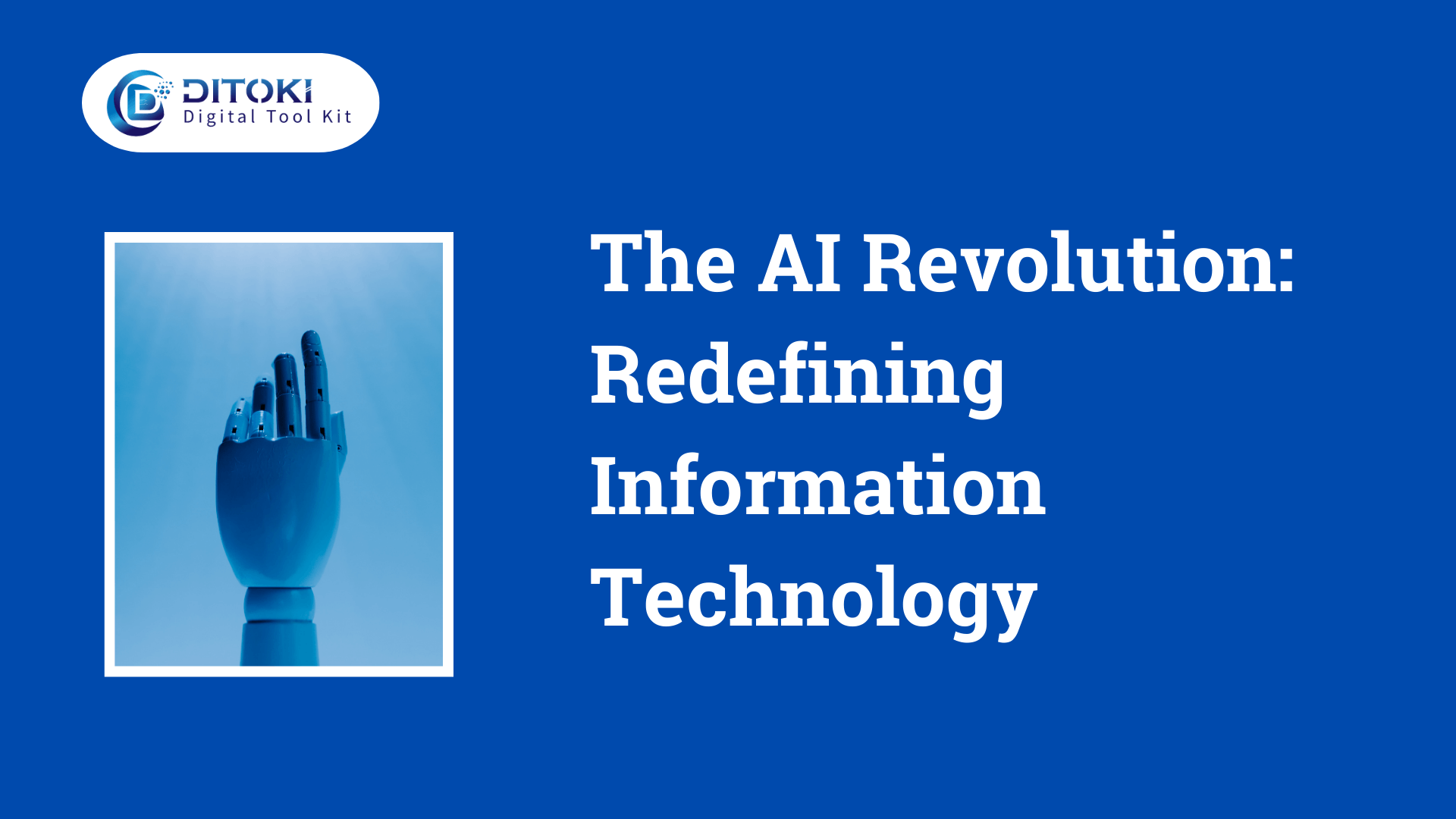Artificial intelligence (AI) is rapidly transforming every sector imaginable, and the information technology (IT) industry is no exception. From automating mundane tasks to bolstering cybersecurity, AI is fundamentally reshaping how IT operates. This content explores the multifaceted impact of AI on IT, highlighting its potential for both disruption and advancement.
Automating the Mundane: Increased Efficiency and Productivity
One of the most significant effects of AI in IT is automation. AI-powered tools can handle repetitive and time-consuming tasks with remarkable speed and accuracy. This frees up valuable human resources for more strategic endeavors.
IT Service Desk: AI-powered chatbots and virtual assistants are taking center stage in IT service desks. These intelligent systems can address common user queries, troubleshoot basic issues, and even escalate complex problems to human specialists. This not only reduces the burden on IT staff but also provides users with 24/7 support.
Software Development and Testing: AI can automate tedious aspects of software development, such as unit testing and code reviews. Machine learning algorithms can identify potential bugs and suggest fixes, significantly accelerating the development process. Additionally, AI-powered testing tools can perform thorough regression testing, ensuring software stability with each new iteration.
Network Management: Managing complex IT networks can be a daunting task. AI algorithms can analyze network traffic patterns, identify anomalies, and even predict potential network failures. This proactive approach allows IT teams to address issues before they disrupt operations.
Enhanced Security: Combating Cyber Threats
The ever-evolving landscape of cyber threats necessitates proactive solutions. AI offers powerful tools for IT security professionals:
Threat Detection and Prevention: AI-powered security systems can analyze vast amounts of data to identify suspicious activity in real-time. Machine learning algorithms can learn from past security breaches and adapt to detect new and emerging threats. This proactive approach significantly reduces the risk of successful cyberattacks.
Vulnerability Management: AI can automate the process of identifying and patching vulnerabilities in software and systems. This ensures that IT infrastructure remains up-to-date and protected against known exploits.
Security Incident and Event Management (SIEM): AI can analyze data from SIEM systems to correlate events, identify the root cause of security incidents, and automate incident response protocols. This allows IT security teams to respond to threats more quickly and effectively.
Personalized Experiences: Tailored IT Solutions
AI is transforming how IT caters to individual user needs. By leveraging machine learning and data analysis, IT can deliver personalized experiences:
Predictive Maintenance: AI can analyze sensor data from IT infrastructure to predict potential equipment failures. This allows for preventative maintenance, minimizing downtime and ensuring optimal system performance.
User Behavior Analytics: By analyzing user behavior patterns, IT can deliver personalized IT experiences. For instance, AI can recommend relevant applications and resources, automate repetitive tasks for individual users, and personalize the user interface based on preferences.
Help Desk Optimization: AI-powered chatbots can personalize user interactions with IT support. These chatbots can learn from past interactions and tailor their responses to address individual user needs more effectively.
Redefining the IT Workforce: New Roles and Skills
While AI automates certain tasks, it also creates new opportunities in the IT workforce. The focus will shift from manual labor to tasks requiring higher-order thinking skills such as:
Developing and Maintaining AI Systems: The growing adoption of AI necessitates a skilled workforce capable of developing, implementing, and maintaining these complex systems.
Data Science and Analytics: Extracting meaningful insights from data is crucial for effective AI implementations. Data scientists and analysts will be in high demand to interpret the data and guide AI development efforts.
Human-AI Collaboration: The future of IT lies in seamless collaboration between humans and AI. IT professionals will need to develop the skills necessary to work effectively alongside AI tools, leveraging their strengths to achieve optimal outcomes.
Challenges and Considerations: Ethical Concerns and Bias
The integration of AI into IT also raises important ethical considerations. Here are some key challenges:
Algorithmic Bias: AI algorithms can perpetuate societal biases if trained on biased data. IT professionals need to be aware of these potential biases and take steps to mitigate them.
Explainability and Transparency: Understanding how AI decisions are made is crucial for building trust. IT teams need to ensure the transparency and explainability of AI-powered solutions.
Job displacement: While AI creates new jobs, it may also displace some existing ones. Governments and educational institutions need to prepare the workforce for this transition by offering retraining programs and fostering skills development.
In conclusion, AI is fundamentally reshaping the IT landscape. By embracing automation, enhancing security, and personalizing experiences, AI offers immense potential to improve efficiency, productivity, and user satisfaction
